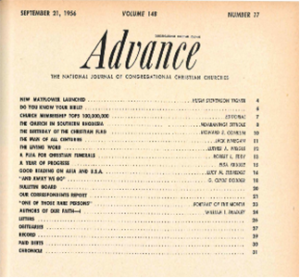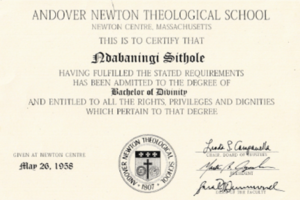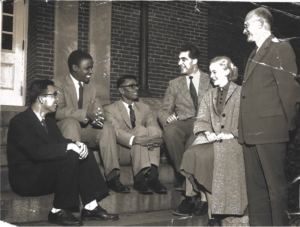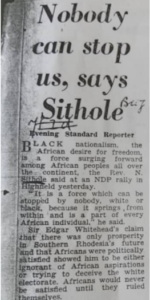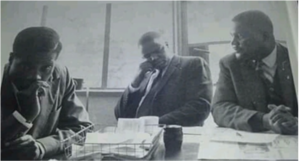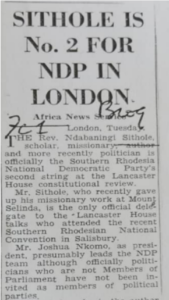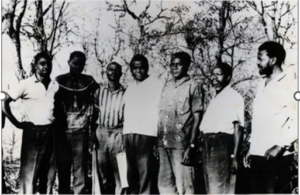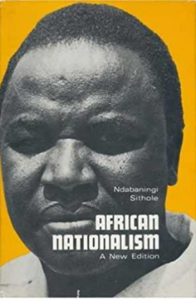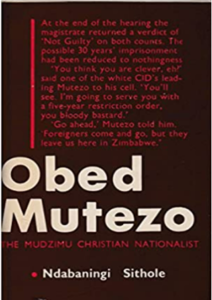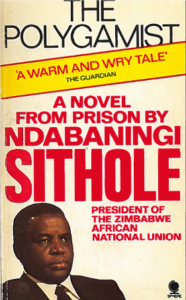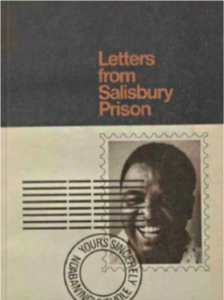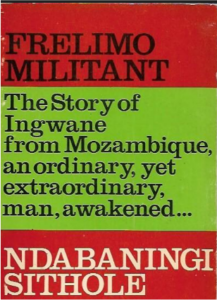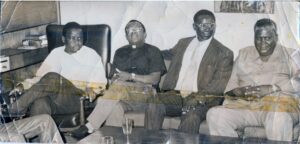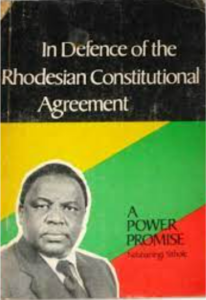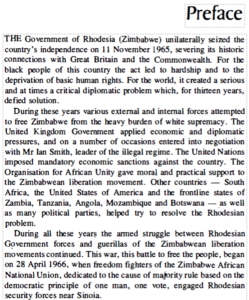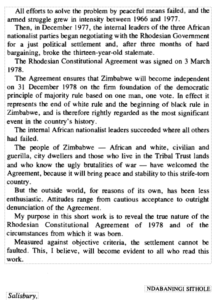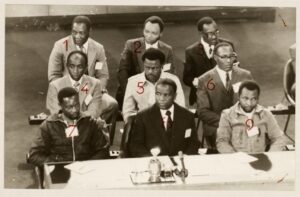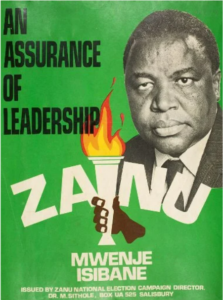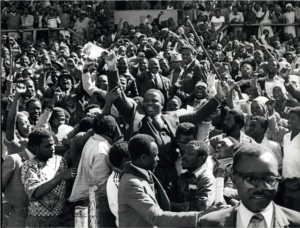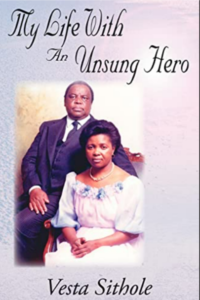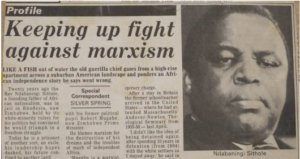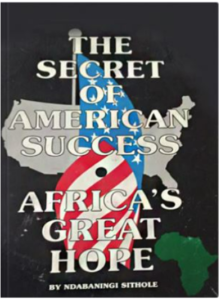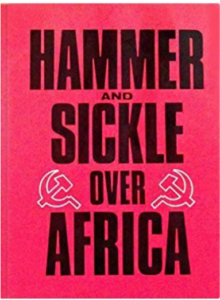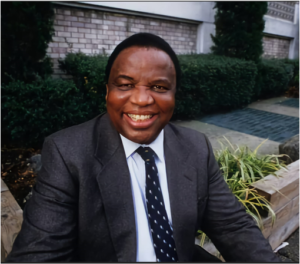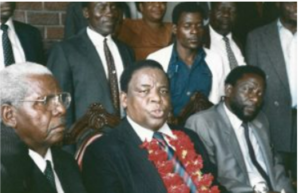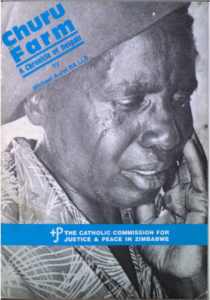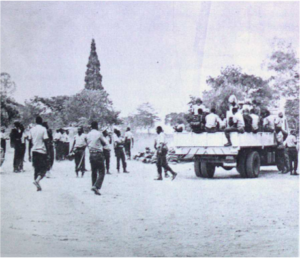Early life
July 20, 1920 born in Nyamandlovu, Matabeleland. He was the first of 9 children born to Chandiwana Jim Sithole and Siyangaphi Tshuma.

Family moves to Shabani.
- Starts attending a school run by British Methodist missionaries.
- His father, however, opposes the idea, and the young Sithole leaves school and becomes a ‘kitchen boy’ in a white home.
Marries Canaan Alice Mafu.
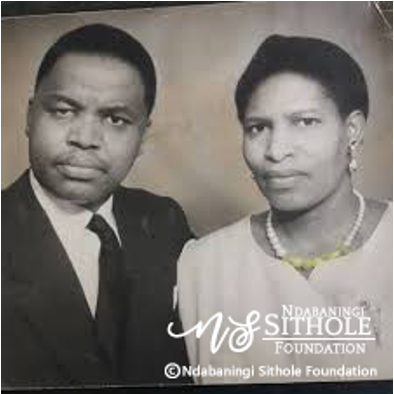
Ndabaningi Sithole – the student years
- Defies his fathers wishes and runs away to enroll at the Dadaya Mission school, which was run by the Reverend Garfield Todd, who later becomes Prime Minister of Southern Rhodesia.
- Repents and becomes a born-again Christian.
Finishes Standard 6 top of his class and obtains a £10 Beit Bursary which is tenable at Waddilove Training Institute for two years where he trains and qualifies as a primary school teacher.
At age 22, Sithole is dispatched to and is appointed headmaster of Mbirashava Primary School in Belingwe.
Sits for the Junior Certificate examinations and passes. Moves to Dadaya Mission as a Standard 5 teacher where he is the highest qualified African teacher.
Attains Senior Certificate of Education, or matriculation exemption, and enrolls for a B.A. degree with the University of South African (UNISA) to read English, Zulu, History, Education, and Sociology. He obtains the degree six years later.
Assistant method master at Tegwani Training Institute.
- Leaves Tegwani and joins the newly organised independent African Mission Church run by Reverend E. T. J. Nemapare (break away from the British Wesleyan Methodist Church).
- Obtains by correspondence BA degree with the University of South Africa (UNISA) while teaching there.
Teaching staff at Mount Selinda United Church of Christ Mission. Finally leaves Dadaya after falling out with Sir Garfield Todd.
Moves to the US to study theology at Andover-Newton Theological College (now Yale University Divinity School) for three years.
While in the US, publishes Umvukela wamaNdebele, the first novel written in Ndebele – published with Longman, Green & Co in Cape Town. The book is subsequently republished by the newly established Rhodesia Literature Bureau.
Ndabaningi Sithole – roots of a revolutionary
- Returns to Rhodesia from the US.
- Is appointed the principal of the Chikore Central Primary School in Chipinge and ordained as a minister of the gospel.
- Publishes African Nationalism.
- Is appointed President of the African Teachers Association.
- Serialises his unpublished novel Busi in African Parade for the next 3 years.


Ndabaningi Sithole – entry into nationalist politics
- Resigns from teaching post and position of President of African Teachers Association.
- Joins the NDP, which was led by Joshua Nkomo, and is elected its Treasurer.
NDP is banned in 1961 and becomes founding Chairman of the Zimbabwe African People’s Union (“ZAPU”).
With a cohort of other nationalists, breaks away from ZAPU to form the Zimbabwe African National Union (“ZANU”).
Ndabaningi Sithole – the nationalist
- ZANU holds its first congress in Gwelo where Sithole is unanimously elected its first President.
- Clarion Call to Zimbabweans


|


|
- Along with hundreds of others, Sithole is restricted by the government and is placed in a remote detention camp – most of the African nationalists are jailed or forced to leave the country. ZANU and ZAPU are effectively banned.
- On 11 November, Rhodesia, a British territory that has governed itself since 1923, declares a Unilateral Declaration of Independence and now regarded itself as an independent sovereign state.
Ndabaningi Sithole – the imprisoned nationalist
- Is tried and is convicted on a charge of plotting to assassinate the Rhodesian Prime Minister, Ian Smith and two other cabinet ministers.
- While imprisoned Sithole is active and directs ZANU’s activities from his prison cell.
- He further develops his thoughts on the philosophy of the liberation struggle and republishes an extended version of African Nationalism with an additional 10 chapters.
- He publishes a novel, “The Polygamist” and a biography/novel “Obed Mutezo: The Mudzimu Christian Nationalist“.
Mgagao Declaration of October 1975, effectively causes a split, resulting in a ZANU led by Sithole and a ZANU to be ultimately led by Robert Mugabe (ZANU PF).
- Leads a delegation to the Geneva Conference whose purpose is to attempt to agree on a new constitution for Rhodesia and in so doing finding a way to end the war.
- Publishes “Letters from Salisbury Prison”, a collection of letters that he smuggled out of prison advising on the war effort and corresponding with world leaders.
Publishes the novel “Frelimo Militant: The Story of Ingwane from Mozambique, an ordinary, yet extraordinary man, awakened“.
- On 3 March, signs the Internal Settlement with Ian Smith together with Bishop Abel Muzorewa, Chief Jeremiah Chirau and James Chikerema.
- Publishes “In Defense of the Rhodesian Constitutional Agreement” which outlines his views on the Internal Settlement.
Leads one of the delegations to the Lancaster House Conference where the terms and conditions of Zimbabwe’s independence are negotiated and agreed.
- On 18 April 1980 Zimbabwe attains its independence
- Sithole becomes one of the few voices challenging ZANU PF’s attempted one party rule.
Marries Vesta Saungweme.
- Flees into exile in the US after an attempt on his life at Chibuwe, Chipinge.
- Remains active in opposition activities while in exile.
Publishes the book, “The Secret of America’s Success: Africa’s Great Hope”.
Publishes the book, “Hammer and Sickle Over Africa”.
Returns to Zimbabwe to active politics.
Churu Farm illegally confiscated from Reverend Sithole by the Government of Zimbabwe. Please move the picturees of the Churu Fam booklet by the Catholic Commission for Justice & Peace to this time period.
Wins a seat in Parliament but later in the year is arrested for allegedly conspiring to kill Robert Mugabe.
Withdraws as an opposition presidential candidate in the 1996 general elections, due to violence and intimidation of his party’s supporters.
Is formally charged for treason and sentenced to two years in prison. He however never serves his sentence because of health problems.
Dies on December 12th 2000 in Philadelphia, Pennsylvania, USA and was buried at his homestead, Freedom Farm, in Mount Silinda, Chipinge, Zimbabwe.


